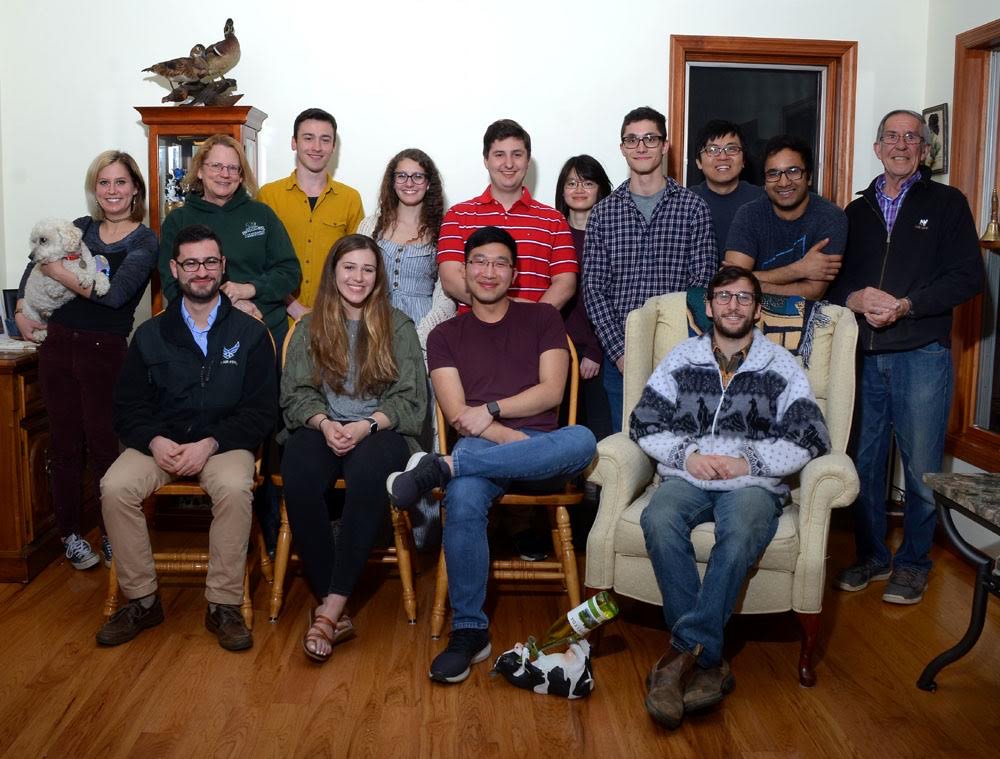Focus on science: Tak Ian Chio pursues a future in biochemical research

While pursuing her undergraduate and graduate studies at Binghamton, Tak Ian Chio built the foundation for her future scientific career.
Chio — whose family came to the United States from Macau, China, when she was 12 years old — earned a bachelor’s in biochemistry at Binghamton University in May 2010. While she initially intended to go to medical school, her plans changed and she decided to return to Binghamton for her doctorate in the field.
“When I was finishing my undergraduate studies, I never felt that would be the end of my college education; I knew I wanted to continue to pursue higher education,” said Chio, who completed her PhD in the fall of 2020.
During her time at Binghamton, she enjoyed seeing the University grow, both with regard to renovations and the expansion of programs.
“For me, it’s especially meaningful to see the University’s increasing investment and commitment in science and research,” she said. “The building of new lab spaces, the acquisition of state-of-the-art instruments, the establishment of new schools, such as the School of Pharmacy and Pharmaceutical Sciences, and the recruitment of new research faculty have all directly or indirectly enhanced my research experience there.”
Biochemistry Program Director and Professor Susan Bane proved a source of inspiration for Chio; she was Chio’s research advisor for her undergraduate honors thesis, and Chio later joined her lab as a graduate student. As an advisor, Bane encourages students to take the reins of their own projects while supporting them from the sidelines.
“Oftentimes when experiments don’t work out and you start to get bogged down by the minutiae of the problem, she has a way of guiding you out of the trees to see the forest again,” Chio said.
On the research front, Chio’s time at Binghamton was highly productive; she published her work in five scientific journals and presented at over a dozen national conferences. In particular, her research centers around the development of chemical tools that can be applied in biology and medicine.
One project in particular focused on a novel bioorthogonal chemistry researched by Bane and others. The specific partners react quickly and selectively, forming a stable product under biocompatible conditions — a constellation of attributes that are rather unique. Chio’s work explores the possibility of using this chemistry to attain uniform antibody-drug conjugates, which are a growing class of biotherapeutics, especially in the cancer arena. Ultimately, this approach would help reduce potentially toxic drug side effects, she explained.
Her research trajectory continues via a postdoctoral fellowship at the University of Pennsylvania’s Center for Neurodegenerative Disease Research where she is currently focusing on the pathogenic mechanisms behind neurodegenerative diseases, such as Alzheimer’s disease. Long term, Chio hopes to make meaningful contributions to the scientific community for the greater good, whether in academia or industry.
“I have come to appreciate the wonderful day-to-day learning opportunity that the profession entails,” she said. “It’s not an exaggeration that you get to learn new things every day, whether it be through your own work or reading about others’ work. I think that’s one of the greatest joys of being a scientist.”

